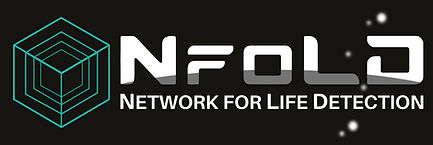ECC Member Spotlight: Sean Brown
- networkfld
- Nov 27, 2023
- 2 min read
For our ECC Member Spotlight for November, we are highlighting Sean Brown from the University of Maryland, Baltimore County! He is the Webinar and Website Lead within our NFoLD Communications and Organization Team and helps organize and run the webinar and create content for our website!
Who I am:
I am a 4th year Biological Sciences Doctoral Candidate at the University of Maryland, Baltimore County with a focus on astrobiology, synthetic biology, and theoretical biochemistry.
What I do:
My work asks the question of what alien or alternative protein biochemistry would look like. Would it be eerily similar or starkly different from what we have seen for the past ~3.5 billion years on Earth?
Life on Earth has evolved to construct metabolism as a network of genetically encoded proteins. Early evolution established a single, standard library of 20 L-⍺-amino acids with which to build proteins since life’s last universal common ancestor (LUCA). Multiple disciplinary lenses agree, however, that a far greater diversity of amino acid structures was available to life’s origins and early evolution. Amino acids appear readily available to the planetary bodies that comprise our galaxy, have been detected within meteorites, produced by a wide range of conditions for simulating prebiotic chemistry, and have even been theorized to occur within the interstellar medium.
Given that a single set has proven capable of building proteins adapted to every imaginable environment for life on Earth for more than 3.5 billion years, they are thus an attractive, recognized focus of astrobiological research.
A decade of research now supports the idea that the genetically encoded set of 20 amino acids exhibits highly unusual physicochemical properties as a set. The range and evenness with which they cover the chemistry space of possible volume and hydrophobicity are remarkable when compared to random alternatives. This theory has matured far enough that it is both tractable and useful to now ask the question: if an independent origin of life were to build proteins using amino acids then what would we expect, using Earth life as a guide?
Why I enjoy doing NfoLD things:
What I find most rewarding about working with NfoLD is the fantastic mix of interdisciplinary early-career researchers it brings together, and I'm honored to count many of these remarkable individuals as friends. My role in facilitating webinars and managing the website further adds to this enthusiasm for NfoLD as It gives me the chance to interact with some of the brightest new minds in the field, sparking conversations that are unparalleled anywhere else. I'm sincerely grateful for the opportunity to collaborate with everyone in this RCN and am looking forward to continuing this work in the future!

Comments